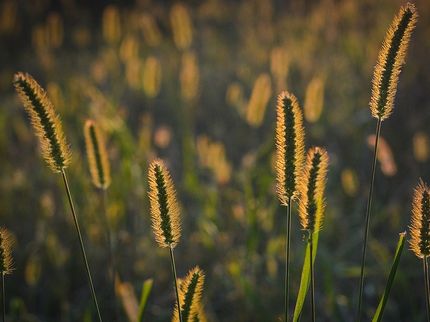Positive Phase IIB data for Biomay's grass pollen allergy vaccine
Biomay announced that the results of a landmark phase IIb study with its 3rd generation grass pollen allergy vaccine BM32 will be reported at the EAACI Congress 2015 in Barcelona, Spain.
The study, which was completed in 2014, convincingly provided clinical proof of concept for this first of kind B-cell epitope derived allergy vaccine. It was observed that the Rhinoconjunctivitis Symptom Score (RSS) year was reduced by 25% compared to the placebo (p=0.042, statistically significant) in this 181-patient trial during the peak pollen season in the second treatment. The treatment also significantly improved patients’ well-being measured by two independent methods (Visual Analogue Scale (VAS, p=0.014) and the Rhinoconjunctivitis Quality of Life Questionnaire (RQLQ), p<0.005). A 22% difference of a Combined Symptom and Medication Score (SMS) to placebo was also found (p=0.085). The observed clinical effects were supported by a potent and sustained induction of allergen specific IgG antibodies, which are responsible for blocking the interaction of allergens with IgE on effector cells. Unlike the established allergy vaccines derived from grass pollen extracts, BM32 did not lead to any boost of disease causing IgE production, on the contrary the seasonal boost of IgE induced by pollen exposure was significantly dampened.
The treatment was safe and very well tolerated. Most side-effects were mild to moderate and resolved within a short period after drug application.
Rainer Henning, CEO of Biomay commented: "It is a great honor for Biomay that our study has been selected by the organizers for presentation in one of the most looked-for sessions of this prestigious conference. It is in recognition of the cutting edge clinical science, which has been the result of excellent cooperation between the study investigators and the company. We look forward to discussing the data with opinion leaders in the field of allergy immunotherapy from around the globe at this event."
Other news from the department research and development

Get the life science industry in your inbox
By submitting this form you agree that LUMITOS AG will send you the newsletter(s) selected above by email. Your data will not be passed on to third parties. Your data will be stored and processed in accordance with our data protection regulations. LUMITOS may contact you by email for the purpose of advertising or market and opinion surveys. You can revoke your consent at any time without giving reasons to LUMITOS AG, Ernst-Augustin-Str. 2, 12489 Berlin, Germany or by e-mail at revoke@lumitos.com with effect for the future. In addition, each email contains a link to unsubscribe from the corresponding newsletter.



















































